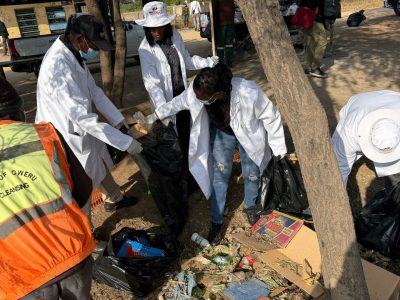THE Government has been urged to implement administrative gold sourcing and mining reforms in the artisanal mining sector to ensure traceability of minerals, curb criminal activities and violence associated with artisanal mining areas. This comes on the backdrop of the revered MaShurugwi’s Machete Gangs as Zimbabwe Republic Police have widened investigations into the smuggling of 23 gold pieces worth US$783 000 by a Zimbabwean who was arrested in South Africa, and are waiting for a detailed report from Interpol officials based in Pretoria, which will be critical in assisting their inquiry.
The call comes after criminal activities by marauding gangs of machete attackers that have resulted in murder, rape, assault, housebreaking and stock theft throughout the country.
Presenting a report to the joint Parliamentary Portfolio Committees on Mines and Mining Development and Defence and Home Affairs, local environmental watchdog Zimbabwe Environmental Law Association (ZELA) called for tighter measures in the buying of gold saying the “no questions asked”, provision had fuelled violence in mining areas.
“The Reserve Bank is buying gold on a no-questions-asked basis albeit not aligned to the Gold Trade Act. Instead of leveraging this moratorium to promote registration and formalisation of artisanal miners, chaos, conflict and criminality are festering.
“What it means is that one can use violence or even kill to secure gold and easily dispose it at Fidelity Printers without any questions being asked.
“The know your client concept which allows traceability of gold has been set aside,” said ZELA director Mr Shamiso Mutisi.
Mr Mutisi said Government should speed up the establishment of a mining system which provides efficient and transparent management of minerals licenses, leases and permits consistent with the mining and quarrying laws of Zimbabwe.
“Efforts by Government to modernise the mining cadastre system have remained fruitless. The system in use is prone to manipulation and mistakes leading to double allocation of claims resulting in disputes.
“The disputes can easily lead to violence as people fight to secure access to prolific gold areas,” he said.
He said crimes remained rampant in artisanal mining as many people who were left jobless because of the effects Covid-19 had turned to mining as a source of income.
“The pandemic has left many people jobless. As a result, many are now venturing into mining for the quick buck that they can get.
However, mining is capital intensive as a result some venturing into the sector are opportunists who do not have claims, this will result in conflict as they force themselves on what is not theirs,” he said.
He hailed ZRP’s “Operation Chikorokoza Chapera” which effectively dealt with machete wielding gangs.
“The situation has normalised and we appreciate efforts by ZRP which resulted in 57 000 people being arrested for violence in artisanal mining areas,” he said.
Mr Mutisi also called for tougher action to curb illicit gold exports and trade and urged Government to formalise the artisanal mining
This comes as Parliament has summoned Home Affairs and Cultural Heritage Minister, Kazembe Kazembe, to give a ministerial statement on the security situation at the country’s ports of entry and exit following a surge in cases of smuggling which are prejudicing the country of millions of dollars.
Minister Kazembe was directed to issue the statement by Speaker of Parliament Advocate Jacob Mudenda after a request by Dzivaresekwa legislator, Mr Edwin Mushoriwa.
A suspect, Tashinga Nyasha Masinire (33), was found in possession of 23 pieces of gold allegedly smuggled from Zimbabwe.
He was arrested at OR Tambo International Airport on Sunday by South Africa’s anti-organised crime unit, the Hawks and is facing charges of contravening the Customs Act 91 of 1964 and Precious Metals Act 37 of 2005.
Masinire has since appeared in the Kempton Park regional court in Gauteng province and granted R100 000 bail and ordered to not leave the country until the matter has been finalised.
Masinire was also ordered to report at any nearest police station three times per week.
The matter was remanded to the July 1.
Ordinary citizens in Zimbabwe are concerned over the circumstances under which Masinire passed through security checkpoints at the Robert Gabriel Mugabe International Airport,
without declaring his luggage, only to be arrested in South Africa.
National police spokesperson Assistant Commissioner Paul Nyathi is reported to have indicated Police were determined to get to the bottom of the matter.
“It is something that we are currently seized with. We are presently waiting for a full report from Interpol offices in Pretoria. It is really a case of interest which the police are investigating.
“We want to know if he (Masinire) was alone by the time he got to the airport, was he under escort and did he declare the luggage or was the luggage with someone?” he said.
On arrival at OR Thambo International Airport, Masinire was requested to scan his luggage at the international arrivals customs section of the South African Revenue Service (SARS), and 23 pieces of gold were allegedly found in his luggage.
It was then established that he had not declared the goods and did not have a permit to transport the gold.
The Hawks were then called to effect the arrest. Masinire’s arrest comes about seven months after Zimbabwe Miners Federation president Henrietta Rushwaya was arrested at Robert Gabriel Mugabe International Airport with 6kg of gold worth US$366 destined for Dubai.
Rushwaya’s case is still before the courts.
Government has indicated its desire to fight corruption across all sectors of the economy but despite the many arrests in the recent past as the Second Republic intensifies the fight against graft, some officials at ports of entry and exit and in critical offices, continue to engage in the vice.
Several top ranking officials including ministers and permanent secretaries such as former ministers Obadiah Moyo and Prisca Mupfumira, have been arrested and appeared in court over corruption and their cases are at different stages.









Comments